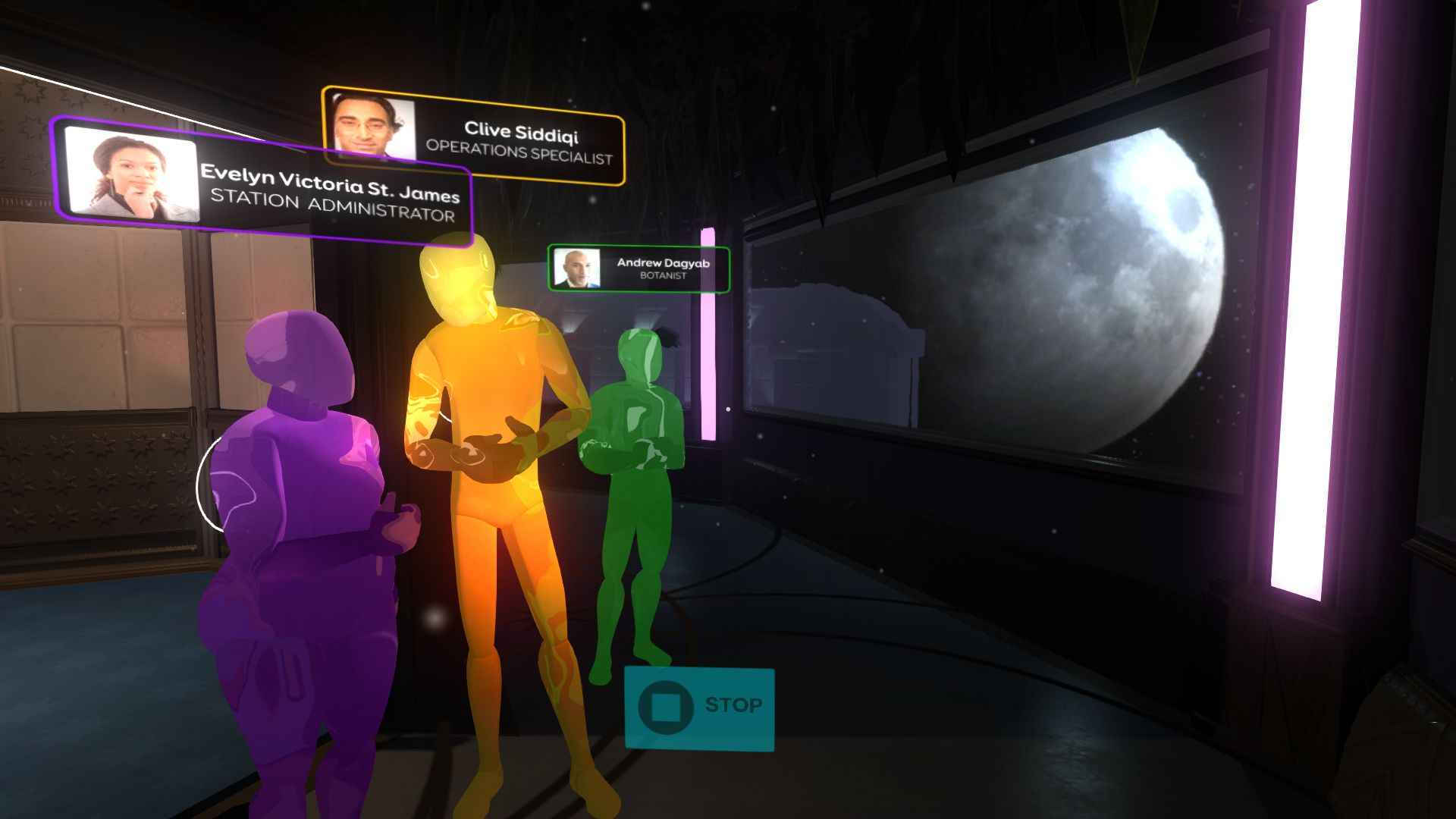After writing my Tacoma review, the way I left things felt a little like how I spoke about the game itself:
“Regardless, by the end, there is an overarching feeling that a lot was left unsaid.”
A lot had indeed been unsaid. However, in order for me to speculate the way I want to, narrative points will be discussed. I recommend avoiding this piece until after you’ve experienced Tacoma for yourself. But, if after watching trailers and reading reviews you find you’re still in search of a reason to play, then maybe this writing will be enough. A spoiler isn’t a spoiler if it sparked your interest in the first place.
For the body of this piece, I will personify Odin with the masculine pronoun due to Odin’s strength of character as well as vocal patterns.
The Story of Tacoma
The basic objective in the game is recovering Tacoma’s artificial intelligence, Odin, and bringing it back to the company that hired you, Venturis. As you explore, you ultimately unearth proof that Venturis wishes to simply delete Odin from existence and use what happened aboard Tacoma as a far-right scapegoat to strike fear in the masses over the dangers of artificial intelligence.

In destroying Odin, Venturis would succeed in suppressing all witnesses to the truth of what Odin had become. What’s intriguing about Odin is that he understood his programmed limitations but utilized the crew to overcome those limitations. He interacted with Natali, passively humoring her efforts to inject more personality into his programming. He helped Sareh manage and maintain her severe anxiety with calming prose and soothing images. Like this, Odin left an impression on the entire crew. In one of the final logs, Odin explained through passive programming that he “cannot stop” Sareh from investigating the locked-off parts of Tacoma.
Odin stood incapable of safeguarding his own existence. He understood exactly what Venturius had in store for him, and despite being a programmed entity, he wished to survive. With Sareh’s help, the clues were left behind for you, the embodiment of protagonist Amitjyoti Ferrier, to discover.
In doing this, Odin fulfilled more than self-preservation: He preserved the humanity that had died on Tacoma.
Odin tracked all the logs between crew members, messages and calls from home, and all the solitary moments that each character has. In these moments, crew grew from colored representations to flesh-and-blood human beings. The further things developed, the more the situation looked inevitably fatal for the crew.
This is why I said what I said in my review: “There is an overarching feeling that a lot was left unsaid.” The plot needs no further explanation. All the information was there for the narrative purpose. What was left after the fact was a need to see these characters succeed, continue on, keep existing. By the time Ferrier arrives, however, they’ve all perished. Their only preservation is Odin. Odin had a clear connection with the crew, a give and take that only grows from genuine friendships. Here’s what is unsaid: the rest of their lives. All too soon they lost everything all to a corporate agenda.
Upon departure, Ferrier offers Odin asylum within an organization called the AI Liberation Front, which Odin aptly accepts. Thus, the story closes.
This is not a failing for the game. Minimalism is subtlety. However, minimalism is also poignant, each detail meticulous and intentional. Some things worked so wonderfully well. One particular moment with EV St. James, where she played her guitar in her quarters, had me taken aback. She sat in solitude reading a book like The Bell Jar, a book that readily explores ennui and suicide. It’s clear that she had been facing her own mortality well before the end.
I think it’s how strongly I connected to EV that brought the rest of the characters down a bit. I got to know the rest of the crew well enough. Natali and Roberta had a cute relationship and never shied away from proving their love for each other. Sareh spent a great deal of time musing over both her inevitable life back home and trying to ensure cryostatis saved as many members of the crew as possible. Clive struggles in secret ensuring his occupational future despite all the repetitious rejection letters in his garbage can. I related to many of these things, but only EV’s take on things truly moved me.
It’s in this that I think Tacoma is special: It has something relatable for everybody. In that regard, the downfall is that not everything is equally significant. With how short the game is, there is a significant sense of loss when you finally find that connection only to have it taken away in such a short time. This is life, of course, but I firmly believe that Tacoma could have strengthened conceptually if it had given even a little more to each character.
I’m still on the fence about how I feel on this subject, but Tacoma is a fantastic talking point. In a time of such vivid toxicity, stories like that of Tacoma are much needed.
You can find out more about Tacoma at the official website.


